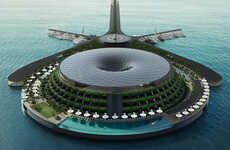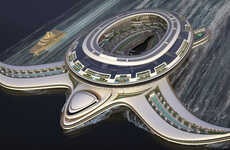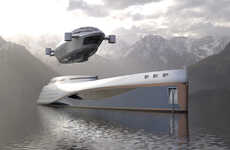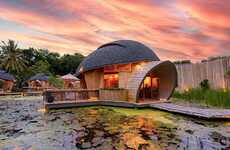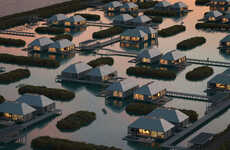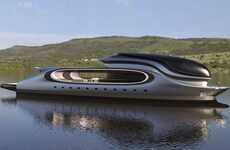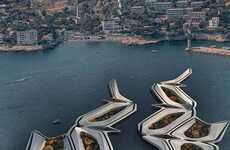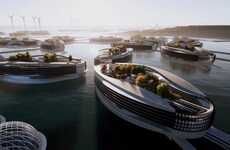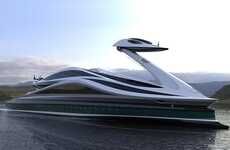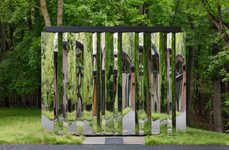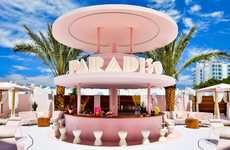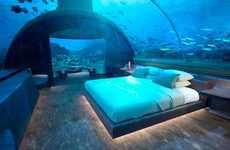
Pierpaolo Lazzarini Proposes a Pyramid-Like Hotel City
References: lazzarinidesign.net & dezeen
When one thinks of floating hotels, the mind wanders to luxurious yachts and sizable boats. Architect Pierpaolo Lazzarini, however, has a more innovative vision. Drawing design inspiration from Mayan architecture, Egyptian pyramids and the Japanese temples, the professional utilizes a multicultural approach toward a modular system-based floating city-hotel.
The main pyramid is envisioned to be atop a 3,000 square meter floating basement unit. The constructions will boast slides and waterfalls, and there will be numerous small pyramid-like structures that house things like suites, bars and storages.
The floating hotels are to be constructed of fiberglass, carbon and steel. Pierpaolo Lazzarini ensures that both the interior and the exterior of Wayaland — "the name for the conglomeration of buoyant platforms" is ultra-luxurious.
The main pyramid is envisioned to be atop a 3,000 square meter floating basement unit. The constructions will boast slides and waterfalls, and there will be numerous small pyramid-like structures that house things like suites, bars and storages.
The floating hotels are to be constructed of fiberglass, carbon and steel. Pierpaolo Lazzarini ensures that both the interior and the exterior of Wayaland — "the name for the conglomeration of buoyant platforms" is ultra-luxurious.
Trend Themes
1. Modular System-based Design - Exploring a modular system-based design approach for floating hotels presents an opportunity for efficient construction and customization.
2. Innovative Architectural Inspiration - Using cultural and architectural inspiration from Mayan architecture, Egyptian pyramids, and Japanese temples presents an opportunity for unique and visually striking floating hotels.
3. Luxurious Floating Experiences - Creating ultra-luxurious interiors and exteriors for floating hotels offers an opportunity to provide a premium experience for guests.
Industry Implications
1. Hospitality - The hospitality industry can explore the concept of self-sufficient floating hotels to offer unique and luxurious experiences for travelers.
2. Architecture - The architecture industry can embrace modular system-based design to create innovative and customizable structures for various purposes, including floating hotels.
3. Construction - The construction industry can leverage materials like fiberglass, carbon, and steel to build resilient and visually captivating floating hotel structures.
2.5
Score
Popularity
Activity
Freshness

